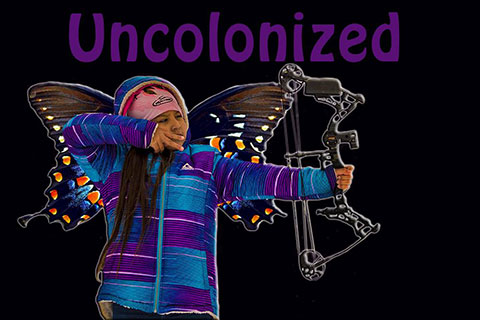Feature Archives
Tue Dec 11 2018
Voter Suppression in Fresno County
The polling place at the Unitarian Universalist church was eliminated in November because of a “Black Lives Matter” sign. It was moved to the Cross City evangelical Christian mega church with three huge crosses out front. The 25,000 students of CSU-Fresno do not have a polling place on campus. Two thirds of the 3,000 inmates at the Fresno County Jail have not been convicted of a crime, yet are not provided a polling booth either.
Tue Aug 28 2018
Thousands of New Oil Wells Placed Next to Homes and Schools
Despite California’s image as a “green” and “progressive” leader, there has been a massive expansion of oil and gas drilling in the state under Governor Jerry Brown — and most of these new wells are located in communities with above average poverty rates and/or communities of color. On August 7, 35 youths held a sit-in at Governor Jerry Brown’s office demanding a plan to phase out oil and gas extraction.
Sun Jun 3 2018 (Updated 06/16/18)
Defend OneFam from Eviction
OneFam in West Oakland is a community-based organization that includes Bikes 4 Life and the 7th Street Rev Cafe, with roots going back to the Oscar Grant movement. Over the last decade, the Black community in West Oakland has faced massive displacement as gentrifying forces steamrolled through the neighborhood. And, now, OneFam is fighting imminent eviction. Solidarity BBQs on 7th Street are happening every Saturday afternoon, starting June 9.
Thu May 3 2018 (Updated 05/04/18)
People's Park Approaches 50-Year Milestone; UCB Pushes Development
Park Advocate reports: The foliage in People's Park is thinner this year. Another tree is gone, and various bushes and shrubs have disappeared. UC Berkeley has further whittled away at the park, and a new press release states that development plans are to be revealed after this academic year ends. The University of California is well aware that as the 49th anniversary of People's Park has passed, eligibility for historical protection is right around the corner.
Sun Mar 25 2018 (Updated 03/26/18)
The Case For the Meadow
A group of UC Santa Cruz faculty, students, alumni, staff, and concerned community members have joined together in an effort to prevent development on one of the most important scenic landmarks of the UCSC campus, the East Meadow. East Meadow Action Committee writes: The open meadows are central to UCSC’s world-renowned design aesthetic. This proposal overturns a fifty-year tradition of environmentally-conscious planning. We support more, better, and more affordable student housing and improved childcare facilities on campus. There are other places to build them that do not overturn UCSC’s proudest traditions.
Fri Mar 23 2018 (Updated 04/01/18)
March For Our Lives
On March 24, the kids and families of March For Our Lives took to the streets to demand that their lives and safety become a priority, and that gun violence comes to an end. Northern California is marched in solidarity. The national mission statement declared: March For Our Lives is created by, inspired by, and led by students across the country who will no longer risk their lives waiting for someone else to take action to stop the epidemic of mass school shootings that has become all too familiar. In the tragic wake of the seventeen lives brutally cut short in Florida, politicians are telling us that now is not the time to talk about guns. March For Our Lives believes the time is now.
Sun Mar 11 2018
Uncolonized: Film Screening and Talk
Uncolonized is a short documentary film about a native family who decided they would never enroll their two daughters in the public school system, choosing instead to homeschool them from birth. Chris is Potawatomi and Chasity is Navajo. Their daughters carry both of their parents' lineages in their blood, but also in their way of being. The film takes a critical look at the historical experiences of native children inside of the U.S. public education system and brings clarity to the decisions of the family to keep their daughters out of the public school system.








